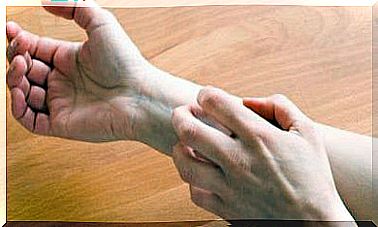Time Management For Children
Good time management is beneficial for both school and leisure. It will be even more useful later in your studies.

Children should also learn time management. On the one hand, to have more time for free time in childhood and, on the other hand, to avoid having to learn structured learning or work later in training, studies or a job.
Do children need time management?
The words “ time management ” and “children” contradict each other at first, but if your child learns and uses effective time management for their duties, such as homework, more time remains for leisure time, games and hobbies.
In this respect , it is your responsibility as a parent to teach your child age-appropriate time management so that they learn early on in a playful way how to have more time for positive things – by creating them for yourself! The sooner your child understands this, the better!
Most of the time, the parents’ schedule determines the children’s day. When both parents work outside the home, or when only one parent takes care of the household, the child’s life is often filled with activity. The time seems to be completely scheduled.
However, when children rush from one activity to another, it doesn’t mean they know how to make the most of the time. As parents, we probably don’t know very well how to organize our own time either. But it is undoubtedly a learning that should start as early as possible.

Teach them to value time
Our children often hear us say “time is money” or “I don’t have time”. When they are young children, they certainly do not understand what we are talking about. Children have no idea about time and how it affects our lives.
As they grow, they gradually understand concepts like today or tomorrow, later or earlier. They are time categories that are understood the older our children are.
Teaching you to value time starts at sunrise. It’s time to get up, get dressed, have breakfast, and go to school or kindergarten.
These first minutes of the day represent the first big opportunity when we have to teach the child how to make the most of the time and not to “waste it away”.
When they get home from school, they need to organize themselves for homework, do extracurricular activities, and then play. We can teach the child that there is enough time for each activity and that they can enjoy some well-deserved free time afterwards.
On the other hand, scheduling the kids all the time is a mistake. And that’s exactly what we do most of the time; we fill children with activities. Rather, they need to learn that once they have done their commitments, they will have free time and decide how to use it. That is the greatest reward.

How to teach the child to make good use of time
As in all matters of parenting, the example we ourselves set to our children is essential. If we are always in a hurry to get the child to school, if we are always late or fail to show up for our leisure activities, we are not setting the best example to help the child learn good time management.
Organizing our own agenda on a daily basis is fundamental to helping our children, no matter how small, organize the time we spend at work, home and sharing with them.
In addition, the time for homework needs to be organized. Homework doesn’t have to be done late in the day. Projects that require preparation days or learning that requires an exam cannot be done for the last moment either.
Helping the child organize their responsibilities, manage their own time effectively, is therefore the best way to teach them how to make the most of their time.
You must also give the child the idea that the more efficiently they do their chores and other household chores, the more they can enjoy their free time. While they are kids, the most important thing is play. Then we have to use this interest to evaluate the importance of good time management.

Help them manage their time
Having free time to play is the greatest reward a child who has managed to manage their time properly can receive. To make this happen, you can support your child with the following tips:
Make a schedule for the child. Your child needs to have a schedule that they are learning to follow. The time the children spend playing, studying, watching TV, exercising, or connecting to the Internet must be adequately included in the schedule.
Develop rituals and routines so that children can independently fulfill their schedule. For example, when they get out of bed in the morning, children should know what to prepare themselves for going to school. Or that they have to do their homework before playing and pack their backpack for the next day before going to sleep.
Assign roles and responsibilities in the family. Roles inspire and motivate children to live up to their responsibilities. The child should know who is responsible for what tasks in the house.
Similarly, when two or more children are at home, roles and responsibilities should be assigned. For example: one is responsible for walking the dog, the other for watering the plants.
There are great benefits in teaching children how to use their time effectively. It relieves you of the tension of doing things yourself and constantly controlling your child.
In addition, effective time management enables the timely fulfillment of all responsibilities, even for the smallest family members. Then everyone can enjoy a well-deserved rest and free time to play and chat.








